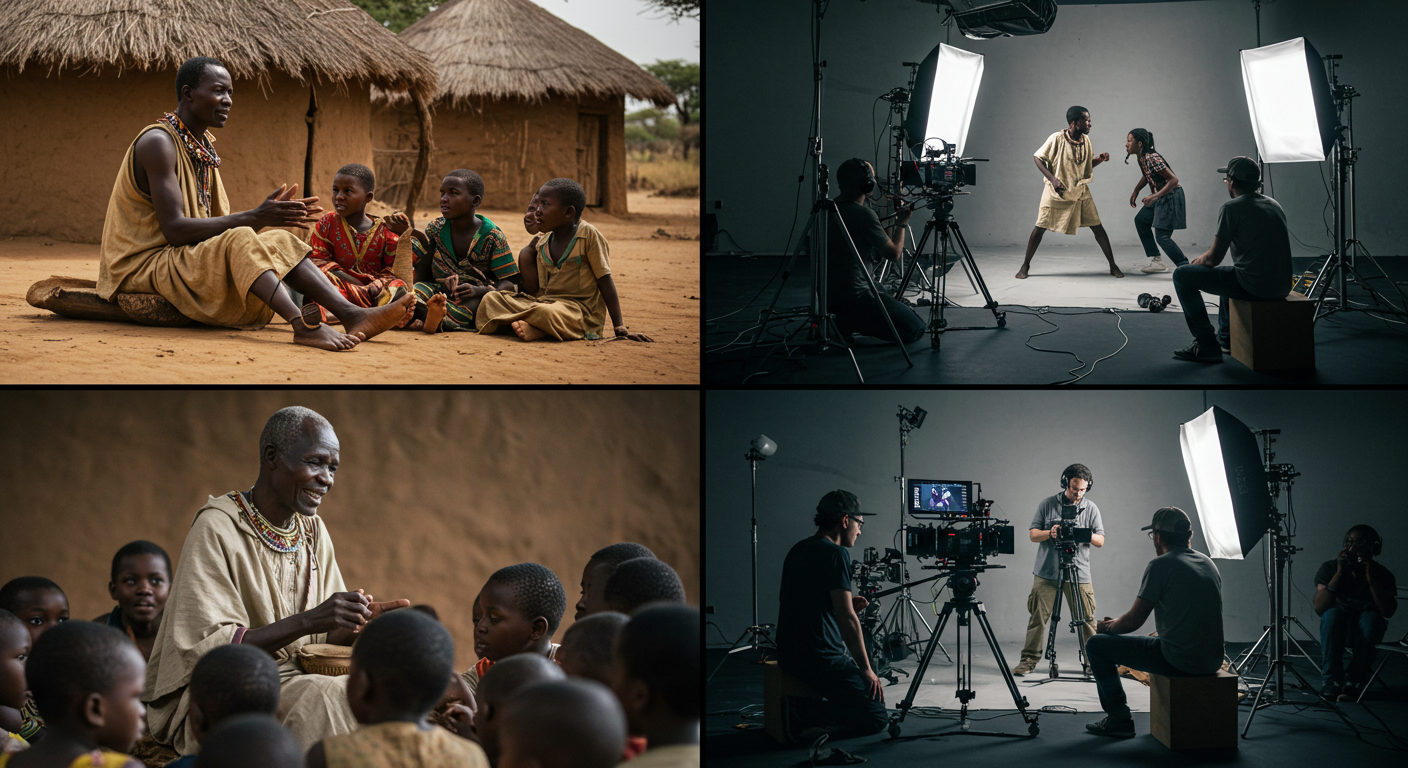Storytelling is central to African culture. From the griots of West Africa to the elders around village fires, Africa’s rich oral traditions laid the foundation for today’s vibrant film and television industries. Over time, these stories have evolved—adapting to modern platforms and technologies—without losing their core values.
The early days of African cinema in the 1960s and ’70s were marked by political consciousness and post-colonial identity. Directors like Ousmane Sembène (Xala, Black Girl) used film as a tool of resistance and education. Nigeria’s video film era in the ’90s brought storytelling to the streets, with accessible VHS tapes and relatable themes, birthing the now-iconic Nollywood.
Today, African storytelling is more sophisticated and expansive than ever. Productions like South Africa’s Blood & Water, Kenya’s Sense8 (partially filmed there), and Nigeria’s King of Boys showcase genre diversity—spanning crime thrillers, teen drama, fantasy, and biopics. Streaming platforms like Netflix and Showmax are investing in African originals, allowing for higher production value and global accessibility.
Importantly, the evolution hasn’t erased tradition—it has repackaged it. Folktales are now anime; proverbs become film dialogue. African storytelling remains communal, moral, and expressive, but it now includes futuristic sci-fi, LGBTQ+ themes, and feminist narratives. This evolution is not a Westernization, but a modernization—an assertion that African voices can be ancient and futuristic all at once.



